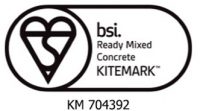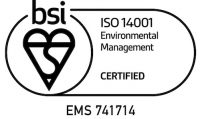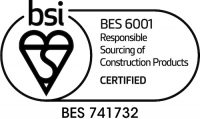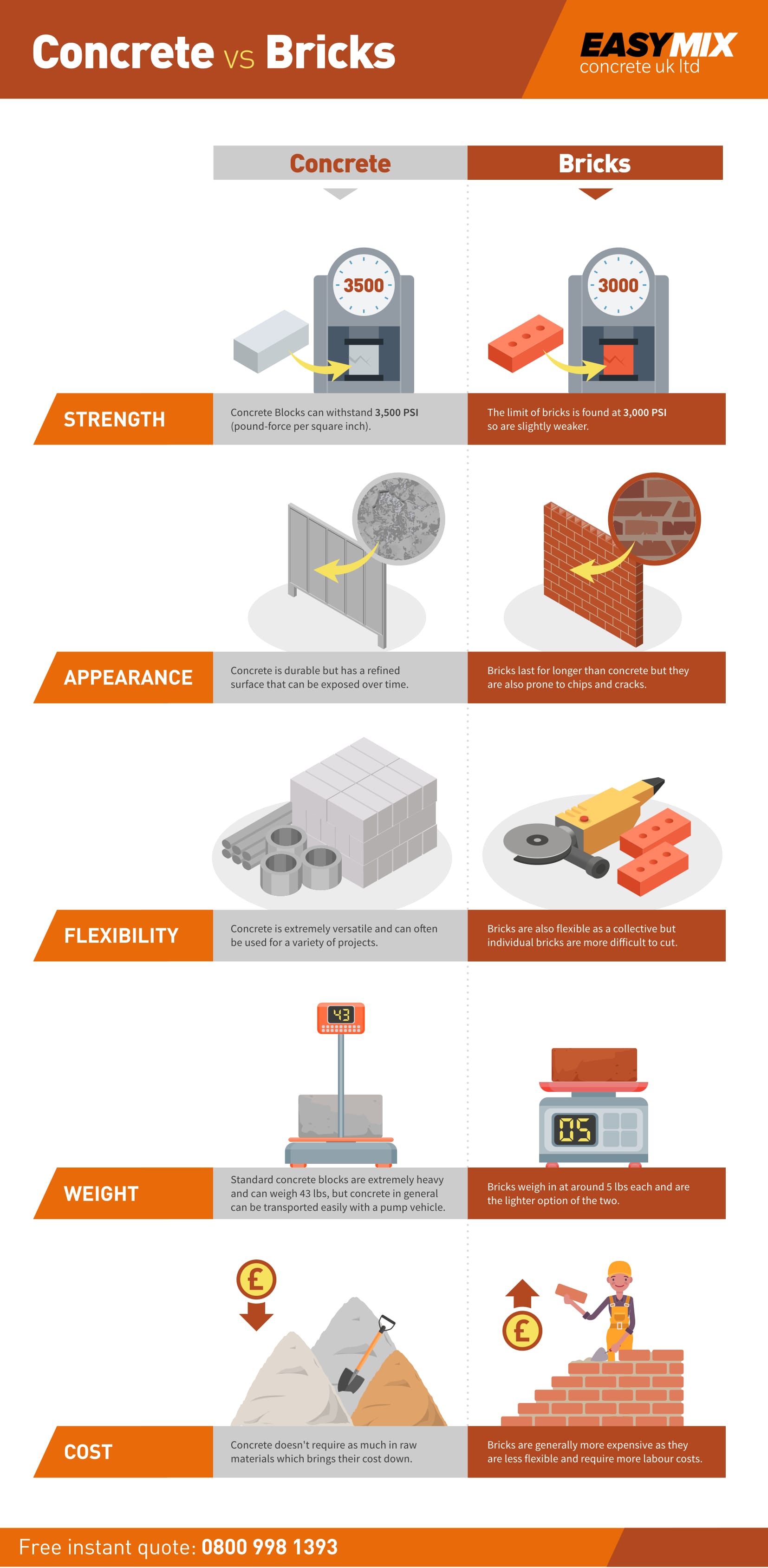Concrete and bricks are used in construction projects worldwide, from small scale renovations to full-blown skyscrapers and tower blocks. They each have their own characteristics and benefits that make them better suited for certain projects and applications, but what is better for which application? We’re going to compare and contrast the two products and see where their strengths lie.
Strength
Both concrete blocks and bricks are relatively strong, but the efficacy of this strength is helped and/or hindered by the quality of the mortar that is used to hold them together in construction. Concrete blocks must have a minimum compressive strength of 1,900lbs per square inch, but many blocks’ strength vastly exceeds this limit.
If we measure the strength in psi, concrete blocks come out on top over bricks. The former can withstand 3,500 psi, whilst bricks’ limit is found at 3,000 psi. Where mortar is concerned, mortar with a high cement content can withstand around 2,500 psi, whereas those with a high lime content can withstand a much lower 350 psi.
Appearance
Contrary to what people may think, concrete slabs are available in many more colours than just grey. There are countless hues and shades available, as well as some patterns to give your surface a true sense of individuality. Bricks offer variety in their colour, too, but this variety is not as wide as that of concrete slabs.
In terms of durability, concrete slabs are somewhat prone to surface erosion, which exposes the rough aggregate underneath the refined surface. Bricks, on the other hand, can chip and crack, but the solid colouring means that any cracks or blemishes will be hard to notice without thorough inspection.
Bricks also boast a much longer lifespan than concrete slabs, lasting for generations, while slabs will need replacing after a couple of decades. A couple of decades is plenty of time, of course, and it may even be the case that you move house or opt for renovation before those decades are up.
Flexibility
Both materials can be used for a variety of applications, with concrete slabs a very popular choice for garden patios and driveways, while bricks are often used for garden paths, as well as driveways. Bricks and concrete slabs offer versatility and a method of adding some colour and variation to the outdoor areas of any property, but the lower cost of concrete slabs, combined with the number of slabs you may need for such installations makes them an ideal choice.
Weight
There is a huge disparity in the weight of bricks and concrete, not least because of the varying size. Bricks usually weigh in at around 5 lbs each, whereas standard concrete blocks can weigh a whopping 43 lbs. This makes transporting large amounts of concrete blocks slightly more difficult, but the quality of the installation and the finished product makes it worthwhile.
Cost
If your main concern is budget limitations, then concrete slabs may be more preferable. They don’t require as much in the way of raw materials, which brings their cost down, whereas bricks can be up to 20% more expensive. Bricks can be more difficult to cut, too, and the irregularities in shape can make them tricky to install, so you may have to pay a little more for labour costs.
As you can see, there are benefits to using concrete blocks and bricks, with each offering their own unique qualities. For value for money, however, concrete leads the way, and if you opt for concrete slabs made from high quality concrete, you’ll have yourself an attractive, durable and versatile addition to your property.
EasyMix Concrete UK are leading concrete suppliers for customers throughout London. For more information about our work, please feel free to get in touch with us today and we’ll be happy to help.




